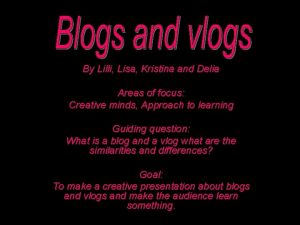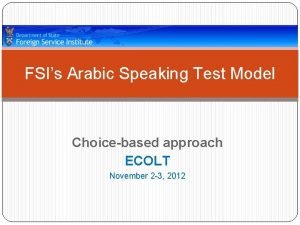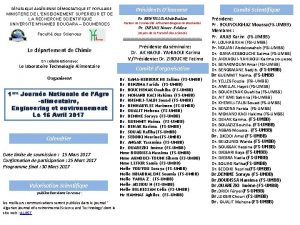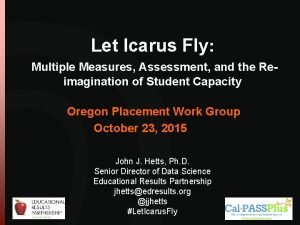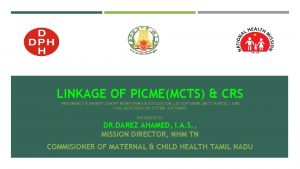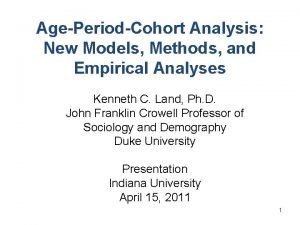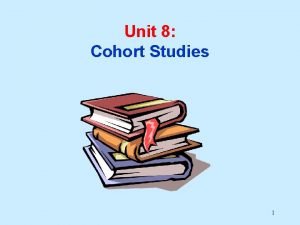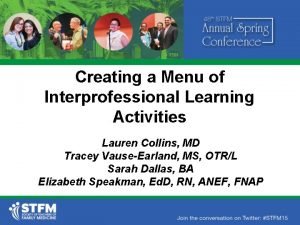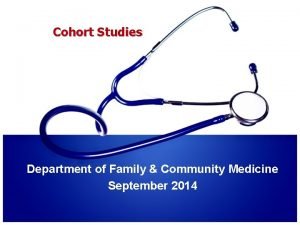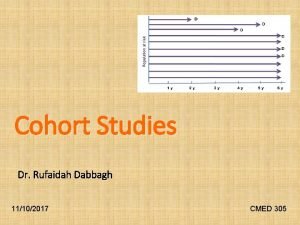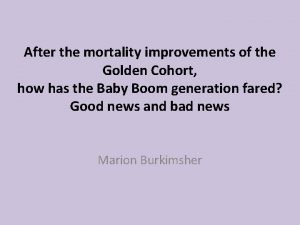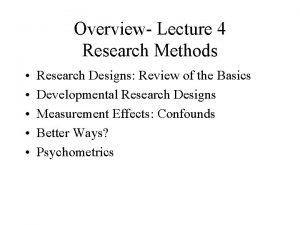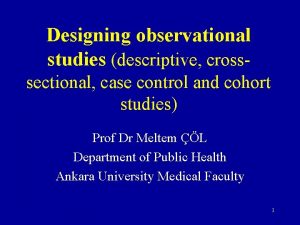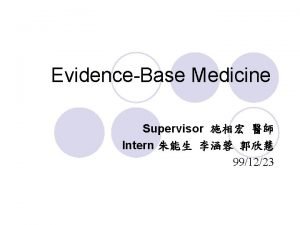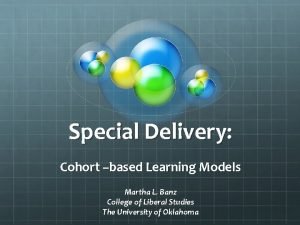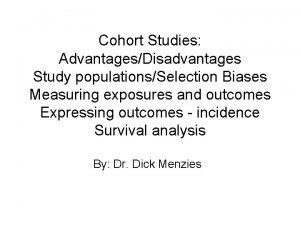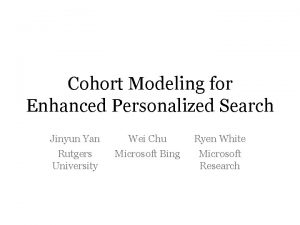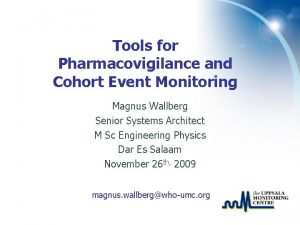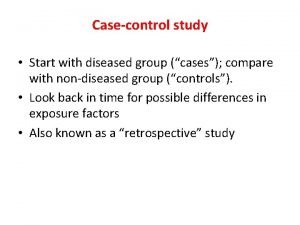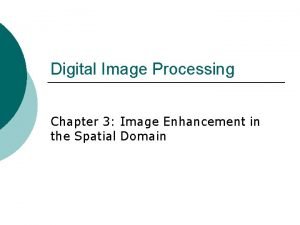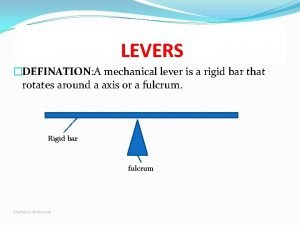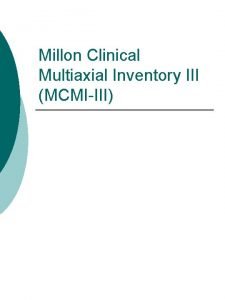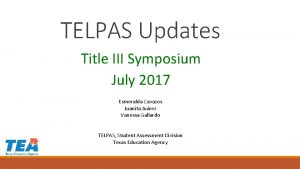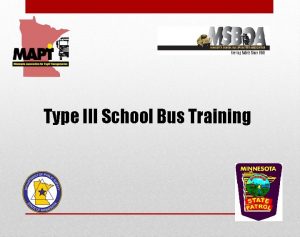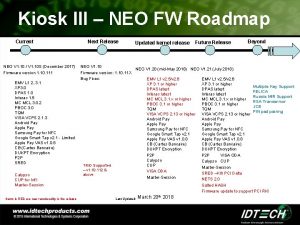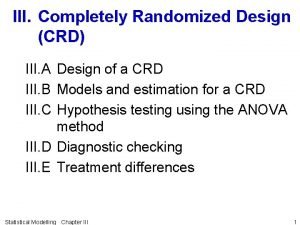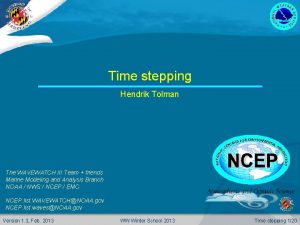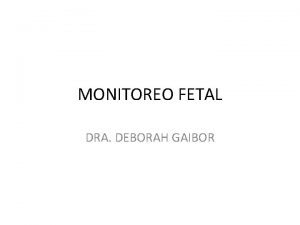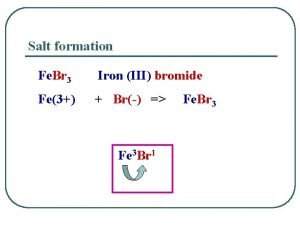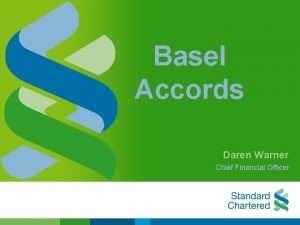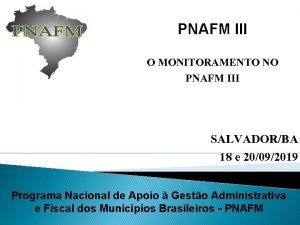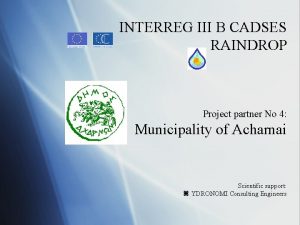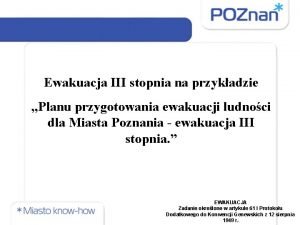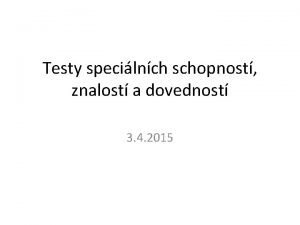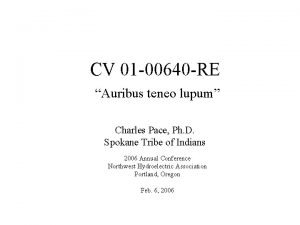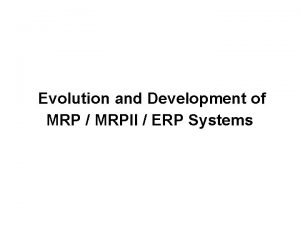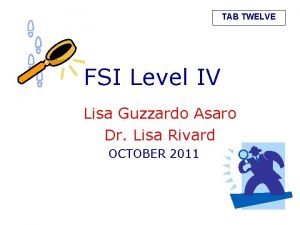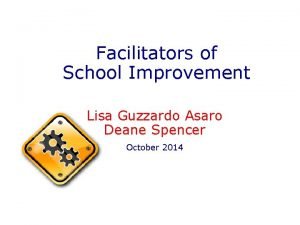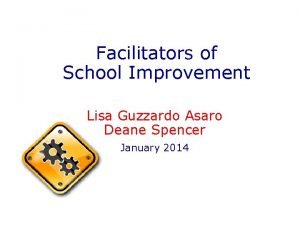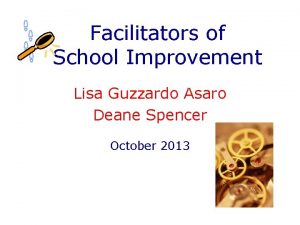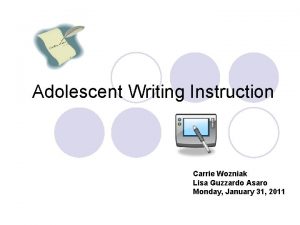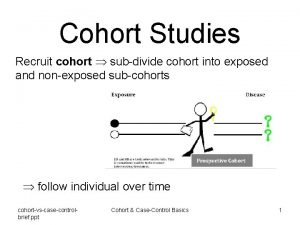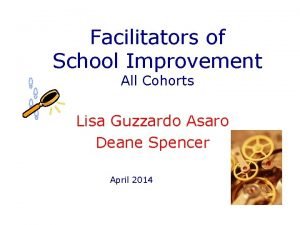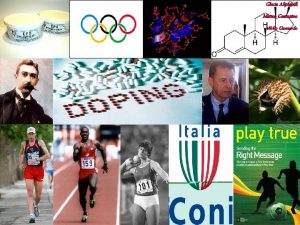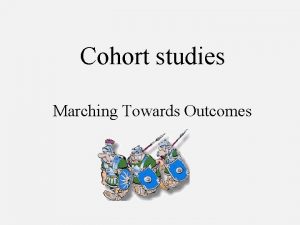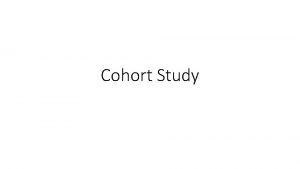FSI Cohort III Lisa Guzzardo Asaro Dr Lisa
















































































- Slides: 80

FSI Cohort III Lisa Guzzardo Asaro Dr. Lisa Rivard OCTOBER 2012

THEMES for 2011 -2012 • School Improvement Process • Data Collection, Analysis, Dialogue and Response • Shared Leadership--Shared Ownership • Shifting Culture to Collaborative Inquiry • Implementation and Monitoring School Improvement Initiatives

FSI Materials • • • White Binder MI-CSI Journal Plastic Folders All, Book Talk: got data? NOW WHAT All Flashdrive Macombfsi. net

Michigan Continuous School Improvement Stages and Steps How is school improvement like an iceberg?

Inclusion Activity Traffic Sign Protocol

Today’s Outcomes • Receive updates • Explore the streamlined SI, ASSIST through Advanc. ED • Check to see where you are with implementing the CCSS • School-wide implementation and progress monitoring • Explore 6 tools to navigate the SI process • Decommissioned-ACT Data Analysis HS only

TAB TWELVE • • • Today’s Agenda Welcome 2011 Themes and Updates What has Changed Due Dates and Professional Learning Common Core State Standards Monitoring the Impact of Strategy Implementation SI Progress Monitoring Data 4 SS/Data Director/MISchooldata Tools and More Tools Network and Planning

TAB One Key Working Agreements A Facilitation Tool • Respect all Points of View • Be Present and Engaged • Honor Time Agreements • Get All Voices in the Room These breathe life into our Core Values

TAB One Pages 25 -29 Creating Key Working Agreements

TAB One Parking Lot A Facilitation Tool • Rest questions that do not benefit the whole group • Place questions that do not pertain to content at this time • Place questions that pertain, but participants do not want to ask at this time

TAB One LIVING BELIEF STATEMENT “Networking is not an option, but a critical part of how Facilitators of School Improvement learn and share their learning. ”

Tab One Page 11 Belief Statements Words—Phrases--Sentence • What do you believe about student learning? • What do you believe about instruction? • What do you believe about how students need to engage in learning?

One Common Voice – One Plan Michigan Continuous School Improvement (MI-CSI) Stages and Steps Gather Getting Ready Collect School Data Build School Profile Do Implement Plan Monitor Plan Evaluate Plan Student Achievement Plan Develop Action Plan Study Analyze Data Set Goals Set Measurable Objectives Research Best Practice

One Common Voice – One Plan Michigan Continuous School Improvement Stages and Steps Gather • Getting Ready • Collect School Data • Build School Profile Ø I. Diagnostic Ø II. School Process Profile • Analyze Data Study Plan Do Ø I. Diagnostic Analysis Ø II. School Process Analysis Ø III. Executive Summary/Goal and Plan Comprehensive Needs Assessment • Set Goals • Set Measurable Objectives • Research Best Practice • Develop Action Plan • Implement Plan • Monitor Plan • Evaluate Plan School Improvement Plan

Stage One GATHER Step 1: Getting Ready GATHER Getting Ready Collect School Data Build School Profile 4 Considerations • School Culture – Collaborative Inquiry Process – Vision, Mission, Core Values and Belief Statements • School Decision Making – From Decide and Announce to Consensus • Team Building – Stakeholder Analysis – Group vs. Team • School Current Reality – ‘Where Are We? ’

Getting Ready, Data Collection/Analysis Implement and Monitor SI PLAN GATHER Getting Ready Collect School Data Build School Profile DO Implement Plan Monitor Plan Evaluate Plan STUDY Analyze Data Set Goals Set Measurable Objectives Research Best Practice GATHER, STUDY, &DO 09. 02. 11 – 04. 01. 12

NEW DYNAMIC and INTUATIVE SYSTEM To INFORM our School Improvement DECISIONS Document I (SDP/A) School Data Profile/Analysis Due Online: 09. 01. 13 Document II (SPP/A) School Process Profile/Analysis Due Online: 03. 08. 13 a. MDE: School Process Rubrics 90 b. MDE: School Process Rubrics 40 c. NCA: Assist Self Assessment (Assist SA) d. NCA: Self Assessment (SA) Document III (Summary Report/Goals Management) Summary Report/School Improvement Plan Due Online: 09. 01. 13

Two Road Maps www. advanc-ed. org/mde www. advanc-ed. org/assist School Process Profile (SPP) document two MICHIGAN DEPARTMENT EDUCATION MDE Advanc. ED Michigan School Process Rubrics (SPR) 90 Rubrics Self Assessment (SA) 56 Rubrics (Required in the 5 th year of your cycle) (Required for the year of the ER) EDYES! 40 Process Rubrics 40 Rubrics (Required Cycles 1 -4) Self Assessment Inventory (SAI) 56 Rubrics (Required Cycles 1 -4) External Review (ER)

Data and Data Analysis Advanc. ED Michigan MDE Diagnostic Student Performance Diagnostic Stakeholder Feedback Diagnostic Performance Diagnostic (perception surveys) External Review (ER) 5 th. Year The Student Diagnostic will be ‘live’ after the ER date has been assigned.

Michigan School Improvement Framework Strand I Teaching for Learning Strand III Strand IV Strand V Leadership Personnel & Professional Learning School and Community Relations Data and Information Management Standards (12) and Benchmarks (26) 1. Curriculum • Aligned, Reviewed & Monitored • Communicated 2. Instruction • Planning • Delivery 3. Assessment • Aligned to Curriculum and Instruction • Data Reporting and Use 1. Instructional Leadership Educational Program · Instructional Support 1. Personnel Qualifications • Requirements • Skills, Knowledge, Dispositions 2. Shared Leadership • School Culture and Climate • Continuous Improvement 2. Professional Learning • Collaboration • Content & Pedagogy • Alignment 3. Operational Resource Management • Resource Allocation • Operational management 1. Parent/Family Involvement • Communication • Engagement 2. Community Involvement • Communication • Engagement 1. Data Management • Data Generation, Identification & Collection • Data Accessibility • Data Support 2. Information Management • Analysis & Interpretation • Applications

Advanc. ED Michigan 5 Standards STANDARD 3. Teaching and Assessing for Learning. The system’s curriculum, instructional design, and assessment practices guide and ensure teacher effectiveness and student learning across all grades and courses. (Continued on next page) 3. 1 The system’s curriculum provides equitable and challenging learning experiences that ensure all students have sufficient opportunities to develop learning, thinking, and life skills that lead to success at the next level. 3. 2 Curriculum, instruction, and assessment throughout the system are monitored and adjusted systematically in response to data from multiple assessments of student learning and an examination of professional practice. 3. 3 Teachers throughout the district engage students in their learning through instructional strategies that ensure achievement of learning expectations. 3. 4 System and school leaders monitor and support the improvement of instructional practices of teachers to ensure student success. 3. 5 The system operates as a collaborative learning organization through structures that support improved instruction and student learning at all levels.

Executive Summary Components • Vision • Mission • Belief Statements • Strengths/Weaknesses • Complete every Year • Due 09. 01. 2013

One e 6 GATHER Getting Ready Collect School Data Build Profile ir te w k c i u Q 23

One Common Voice – One Plan Michigan Continuous School Improvement (MI-CSI) Stages and Steps Gather Getting Ready Collect School Data Build School Profile Do Implement Plan Monitor Plan Evaluate Plan Student Achievement Plan Develop Action Plan Study Analyze Data Set Goals Set Measurable Objectives Research Best Practice

Stage One GATHER Step 1: Getting Ready GATHER Getting Ready Collect School Data Build School Profile

Stage One GATHER Step 1 Getting Ready GATHER Getting Ready Collect School Data Build School Profile 4 Considerations • School Culture – Collaborative Inquiry Process – Vision, Mission, Core Values and Belief Statements • School Decision Making – From Consensus to Decide and Announce • Team Building – Stakeholder Analysis – Group vs. Team • School Current Reality – ‘Where Are We? ’

Change Video You Cannot Send a Duck to Eagle School… And Other Simple Truths of Leadership By Mac Anderson “Wisdom is knowing the right path to take… INTEGRITY is taking it!!”

Reading Minute The Gorilla Story Source: A Trainer’s Companion: Stories to Stimulate Reflection Conversation, and Action by Walter Olsen ad William Sommers (2004)

Tab One Page 54 Understanding Change Activities Trust Vision Skills Resources Payoff Action Plan Shared Values/Beliefs = Trust Vision Skills Resources Payoff Action Plan Shared Values/Beliefs = Change

Who Needs to be on Board? Consideration 3: Stakeholders Early Adopter F. O. B. Free on Board Dependent By-Stander Victim Cynic Scarlett O’Hara Rhett Butler GATHER Getting Ready Collect School Data Build School Profile Tab One Page 55 Choose your category. Think about the people you work with and decide what % of the staff resides in each category.

One Potential Response toward selecting and implementing successful Professional Development Concern-Based Adoption Model CBAM Developed by Gene Hall and Shirley Hord 2001 This helps principals and leadership teams consider staffs’ feelings and concerns when designing professional learning experiences at schools.

CBAM Outline 7 Stages of Concern These are the responses learners experience to change… Stage 6: REFOCUSING “Perhaps if we thought about integrating this with our SS program, we could accomplish more. ” • Stage 5: COLLABORATION “How can I learn about what others are • Stage 4: CONSEQUENCE “How will this affect my classroom? ” • Stage 3: MANAGEMENT ‘Where would I find the time to do this? ” • Stage 2: PERSONAL “Wait, how can I possibly do a new thing. ” • Stage 1: INFORMATIONAL “I’d like to know more about what that is. ” • Stage 0: AWARENESS “I heard about that” Doing? ”

www. advanc-ed. org/mde moves to www. advanc-ed. org/assist Adaptive System School Improvement Support Tool ASSIST

Accessing ASSIST – Option 1 www. advanc-ed. org/assist 34 © 2012 Advanc. ED

NEW ASSIST TABS

Accessing ASSIST – Option 2 Log into the Management System and use one of the ASSIST links 36 © 2012 Advanc. ED

ASSIST Overview Appropriate task will be assigned to priority and focus school 37 © 2012 Advanc. ED

ASSIST Overview Click here to view the task details 38 © 2012 Advanc. ED

These diagnostics are marked optional because only one is required, not both 39 © 2012 Advanc. ED



42 © 2012 Advanc. ED

43 © 2012 Advanc. ED

LABLING is EVERYTHING

45 © 2012 Advanc. ED


Noteworthy Elementary • Professional Learning Opportunities • MI School Data New Data Availability Handout www. mischooldata. org • 12 -13 Parent Involvement and Title I – 02. 11. 12 MISD • MI Professional Learning Standards

Macomb County PLC Self Help Group Facilitator: Dr. Rick Repicky These meetings take place on the FOUR Tuesdays of the month at 10: 00 am at the MISD. They are open to District and School Administrators and teachers. DATES 10. 02. 12 11. 13. 12 01. 15. 13 03. 26. 13 ROOM # 103 A/B 206 202

Important Dates Register at: www. gomiem. org Advanc. ED MI Fall Conference 11. 08. 12 Lansing Center, Lansing MDE Fall Conference 11. 08. 12 4: 00 -7: 00 pm 11. 09. 12 8: 30 -4: 00 pm Lansing Center, Lansing

REMINDER to REGISTER School Improvement Teams Work Day 04. 19. 13 04. 26. 13 04. 30. 13 Title I only 05. 07. 13 05. 08. 13 05. 14. 13 05. 13 Non Title I

Alternative Dates • Make-up Days: must register • 02. 01. 13 • 04. 24. 13 • SB-CEUs: 2. 7 completed in MAY




Item Types I. Selected Response (SR): Used primarily for Claim 1 and administered via computer adaptive testing (CAT) • Multiple Choice II. (a) Technology Enhanced Constructed Response Tasks (TE/CR): Used primarily for Claims 2 -4 and administered via CAT • • Complex tasks that are structured as a sequence of short constructed response items Tasks require longer chains of reasoning II. (b) Extended Response Constructed Response Tasks (ER/CR): Used primarily for Claims 2 -4 and administered in the classroom (not necessarily exclusive of all technology) • • Tasks require longer chains of reasoning and call for extended written answers Scoring rubric provided III. Performance Tasks (PT): Used primarily for Claim 4 and administered in the classroom (not necessarily exclusive of all technology) • • • May require more than one instructional period May incorporate pre-work in small groups Scoring rubric provided

Mathematics

Smarter Balanced Movie and Popcorn Task: View the 14 minute video • Think about the following question and use your sticky notes to record important ideas. What evidence can you site that students and teachers are working at an increased Depth of Knowledge (DOK)?

Smarter Balanced Movie and Popcorn Continued Task: • Have a conversation with your partner on notes taken. • Discuss the evidence you have that students and teachers were working at an increased Depth of Knowledge. • What structures do you see that are in place for these DOK to be accomplished? • Be ready to “pop” up and share.

Smarter Balanced Consortium Career and College Have you SHIFTED Readiness Standards to the Common Transition Guidance Core? 2012

Common Core (Communicator) Implementation Checklist for Principals • Leadership, Awareness Building, and Communication • Professional Learning • Implications for Student Learning • Capacity Building • Special Considerations for Your School

Smarter Balanced Videos • Elementary School Video • Middle School Video • High School Video

Stage One: GATHER Step 1: Getting Ready GATHER Getting Ready Collect School Data Build School Profile

“In God we trust, everyone else brings DATA”

One Common Voice – One Plan Stage One Gather: Step 2 Collect School Data s n o i t i in What do you already know? f e D What data do you need to know? What additional information/data do you need to know? Where can the information/data be found? Demographic or Contextual Data Describes our students, staff, building, and community Achievement Student Outcome Data Process Data Perception Data Opinions of The policies, How our students procedures, and staff, parents, perform on local, systems we have community and state and federal students in place that assessments define how we do regarding our (subgroups) school business

Tab Two Page 3 -4 What types of data are/are not readily available in your building? Demographic Data • Enrollment • Subgroups of students • Staff • Attendance (Students and Staff) • Mobility • Graduation and Dropout • Conference Attendance • Education status • Student subgroups • Parent Involvement • Teaching Staff • Course enrollment patterns • Discipline referrals • Suspension rates • Alcohol‐tobacco‐drugs violations • Participation extra‐curriculars • Physical, mental, social and health Achievement/ Outcome Data • Local assessments: District Common Assessments, Classroom Assessments, Report Cards • State assessments: MME, ACT, MEAP, MI-Access, MEAP Access, ELPA • National assessments: ACT Plan, ACT Explore, ACT Work. Keys, NWEA, ITBS, CAT, MET NAEP, PSAT • GPA • Dropout rates • College acceptance 65 Process Data Perception Data • Policies and procedures (e. g. grading, homework, attendance, discipline) • Academic and behavior expectations • Parent participation – PT conferences, PTO/PTA, volunteers • Suspension data School Process Profile Rubrics (40 or 90) or SA/SAR (NCA) • Event occurred: Who, what, when, where, why, how • What you did for Whom: Eg. All 8 th graders received violence Prevention • Survey data (student, parent, staff, community) • Opinions • Clarified what others think • People act based on what they believe • How do they see you/us?

Stage One Gather Step 2 Collect School Data GATHER Getting Ready Collect School Data Build School Profile DEMOGRAPHICS PERFORMANCE PROCESS PERCEPTION

One Common Voice – One Plan Michigan Continuous School Improvement Stages and Steps Gather Getting Ready Collect School Data Build School Profile Do Implement Plan Monitor Plan Evaluate Plan Student Achievement Plan Develop Action Plan Study Analyze Data Set Goals Set Measurable Objectives Research Best Practice

Stage Four: DO Step 9: Implement Plan DO Implement Plan Monitor Plan Evaluate Plan

Identifying Activities MATRIX 1 Connection to SPR 40/90, SA/Assist SA* How will you address the targeted areas in your Summary Report (SPP)? Getting Ready to Implement How will you ensure readiness for implementation? How will you ensure that participants have the knowledge and skills to implement? POSSIBILE ACTIVITIES Professional development around strategy Purchase materials Planning for implementation – Identify schedule for strategy use, personnel, mechanism for monitoring, rollout, etc. Communication vehicles Implement Monitoring Fidelity of Implementation and Impact How will you ensure successful implementation for your selected activities? How will you ensure the program/activity is implemented with fidelity? How will you monitor the programs impact on student achievement? POSSIBLE ACTIVITIES Communication – to whom? How? Instructional technology* Activities to support atrisk students (For Title One students)* • Parent Involvement POSSIBLE ACTIVITIES Walkthroughs PLC/CASL meetings Documentation of impact Demonstration classrooms Gathering achievement data *Required Components

Stage Four: DO Step 10: Monitor Plan DO Implement Plan Monitor Plan Evaluate Plan

So…we’ve written a stellar school improvement plan… Do Implement Plan Monitor Plan Evaluate Plan Overarching Questions • How do we know we’re implementing it? • How do we know the strategy is impacting student achievement?

EVALUATE THE IMPACT ON STUDENT ACHIEVEMENT Do Implement Plan Monitor Plan Evaluate Plan (Summative) DID IT WORK? Implementation: Adult Focused Impact: Student Focused MONITOR EVALUATE MONITOR ARE STRATEGIES AND ACTIVITIES BEING IMPLEMENTED WITH FIDELITY? DID WE IMPLEMENTTHE PLAN/STRATEGIES CORRECTLY & CONSISTENTLY? IS WHAT WE ARE DOING WORKING? ARE WE COLLECTING & USING STUDENT AND ADULT DATA TO MODIFY & ADJUST ONGOING IMPLEMENTATIO? DID WE GIVE IT ENOUGH TIME? ENOUGH RESOURCES? ARE WE SHOWING EVIDENCE OF STUDENT GROWTH? WHAT INTERIM ADJUSTMENTS ARE SUGGESTED BY IMPLEMENTATION DATA? HOW MIGHT THESE ADJUSTMENTS AFFECT THE INTEGRITY OF THE RESULTS? MONITOR IMPLEMENTATION OF THE PLAN (Formative) IS IT WORKING? EVALUATE DID OUR STRATEGIES RESULT IN INCREASED STUDENT ACHIEVEMENT? WHAT UNINTENDED CONSEQUENCES (GOOD AND BAD) HAVE OCCURRED?

Do Implement Plan Monitor Plan Evaluate Plan EVALUATE THE IMPACT ON STUDENT ACHIEVEMENT (Summative) DID IT WORK? Implementation: Adult Focused MONITOR ARE STRATEGIES AND ACTIVITIES BEING IMPLEMENTED WITH FIDELITY? ARE WE COLLECTING & USING STUDENT AND ADULT DATA TO MODIFY & ADJUST ONGOING IMPLEMENTATIO? Impact: Student Focused EVALUATE MONITOR IS WHAT WE ARE DOING WORKING? ARE WE SHOWING EVIDENCE OF STUDENT GROWTH? WHAT INTERIM ADJUSTMENTS ARE SUGGESTED BY IMPLEMENTATION DATA? HOW MIGHT THESE ADJUSTMENTS AFFECT THE INTEGRITY OF THE RESULTS? MONITOR IMPLEMENTATION OF THE PLAN (Formative) IS IT WORKING? EVALUATE

Just Do IT! • Monitor Implementation • Evaluate Implementation • Monitor Impact • Evaluate Impact Do Implement Plan Monitor Plan Evaluate Plan Adult Focused Student Focused

Grade Level or Content Area Strategy Implementation MATRIX 2

Proficiency to Z score If you define "growth" as performance level change and/or a positive fouryear-slope, then growth would be in the improvement part of the school performance index.

Progress Monitoring Anchor Bay Middle School North Kris Deagan Sarah Kessel-Glassford skessel@abs. misd. net

Tools • School Self Assessment of SI Planning Processes • Protocols for Dialoging Text • Developing Individual Learning Goals • Culture of Trust/Collegial Visit • Family and Community Partnership • Systems and Collaboration Inventory

Directions • Each participant reads about one tool • Identify ways to use the TOOL to support SI initiatives • ‘Use the SI Tools Use’ form to record • Report out to hole group • Meet in school teams to create a plan for use

Stage One: Gather Step 2: Collecting School Data Step 3: Build School Profile GATHER Getting Ready Collect School Data Build School Profile Data Director D 4 SS MISchooldata. org Presenter Dr. Jennifer Parker-Moore Personnel Skilled in Technology Assessment This is an annual survey. Assessment window will open 10. 21. 12 Technology Assessment due: December 2012
 Retrospective cohort study
Retrospective cohort study Mateus asaro
Mateus asaro Floor space index
Floor space index Http:fsi-st univ-boumerdes-dz
Http:fsi-st univ-boumerdes-dz Specelly
Specelly Fsi egyptian arabic
Fsi egyptian arabic Umbb fs
Umbb fs Fsi worldwide
Fsi worldwide Hamlet act iii scene ii
Hamlet act iii scene ii Icarus first cohort
Icarus first cohort Cohort effects definition
Cohort effects definition Cohort event monitoring
Cohort event monitoring Cohort analysis lean startup
Cohort analysis lean startup What is case series
What is case series Cohort adalah
Cohort adalah Picme2.0
Picme2.0 Types of cohort studies
Types of cohort studies Kritik jurnal
Kritik jurnal Cohort effects definition
Cohort effects definition Cohort study example
Cohort study example Students cohort
Students cohort Luxury consumer demographics
Luxury consumer demographics Comprehender adalah
Comprehender adalah Cohort study meaning
Cohort study meaning Cohort study community medicine
Cohort study community medicine Retrospective cohort study
Retrospective cohort study Longitudinal prospective study
Longitudinal prospective study Golden cohort
Golden cohort Types of cohort studies
Types of cohort studies Cohort effects definition
Cohort effects definition Retrospective cohort study vs case control
Retrospective cohort study vs case control Patient chart
Patient chart Cohort based courses
Cohort based courses Bias in cohort study
Bias in cohort study Jinyun yan
Jinyun yan Cohort event monitoring
Cohort event monitoring Difference between case control and cohort study
Difference between case control and cohort study Cohort model
Cohort model Case control vs retrospective cohort
Case control vs retrospective cohort Lisa kanarek
Lisa kanarek Fat cats nyc
Fat cats nyc Chapter 3 image
Chapter 3 image Eminem name origin
Eminem name origin Aluminum and iron iii oxide balanced equation
Aluminum and iron iii oxide balanced equation Fulcrum of scissors
Fulcrum of scissors Nic
Nic Ipfp phase iii
Ipfp phase iii Cerca del tajo en soledad amena
Cerca del tajo en soledad amena King george vs george washington
King george vs george washington Criterios de roma iii
Criterios de roma iii Mcmi meaning
Mcmi meaning O moço loiro iii – brás-mimoso
O moço loiro iii – brás-mimoso Title iii symposium
Title iii symposium Type 3 school bus
Type 3 school bus Kiosk iii
Kiosk iii Leo iii outlawed crucifixes as idolatry.
Leo iii outlawed crucifixes as idolatry. Judge danforth in the crucible
Judge danforth in the crucible I ii iii
I ii iii Crd iii
Crd iii Hendrik tolman
Hendrik tolman Romeo and juliet vocabulary act 3
Romeo and juliet vocabulary act 3 Kamose
Kamose Hipoxia intrauterina
Hipoxia intrauterina Lithium bromide cation and anion
Lithium bromide cation and anion Pillar of basel ii
Pillar of basel ii Basel iv pwc
Basel iv pwc Paraan at proseso ng pagsulat ng pananaliksik
Paraan at proseso ng pagsulat ng pananaliksik Pnafm iii
Pnafm iii Moniciones segundo domingo de adviento ciclo c
Moniciones segundo domingo de adviento ciclo c Replacement reaction example
Replacement reaction example Cadses
Cadses Ewakuacją 1 stopnia przykłady
Ewakuacją 1 stopnia przykłady škála oseretzkého
škála oseretzkého Auribus teneo lupum
Auribus teneo lupum Domingo iii de pascua ciclo c
Domingo iii de pascua ciclo c Tlumacz
Tlumacz Group iii elements
Group iii elements Microaggressions
Microaggressions Parafrasi primo canto inferno
Parafrasi primo canto inferno Pope gregory iii
Pope gregory iii Mrp iii
Mrp iii




